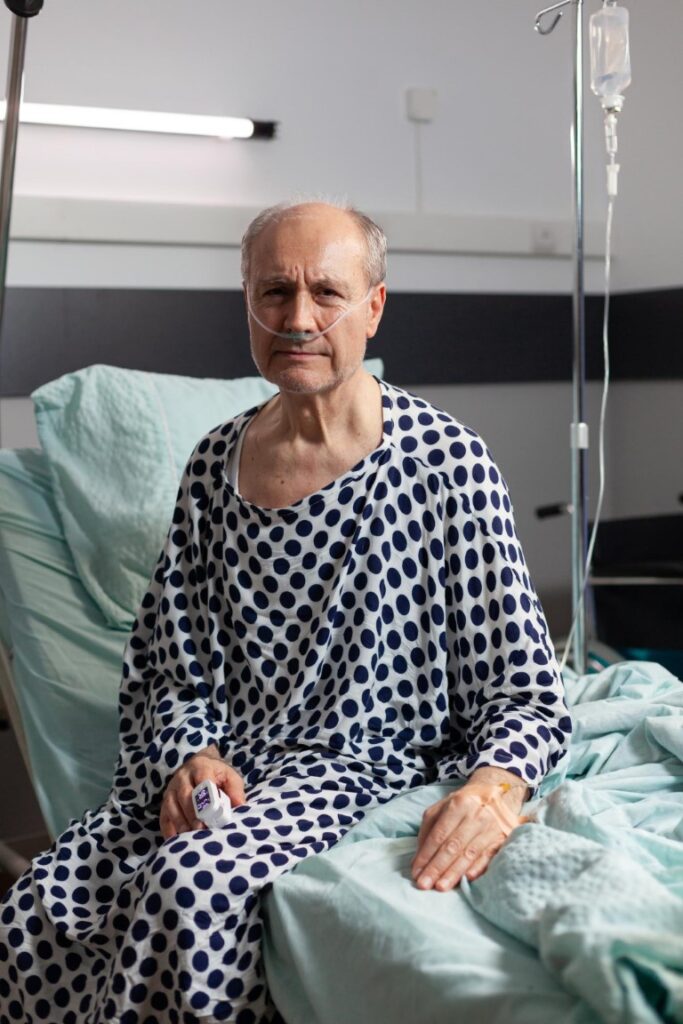Cancer Pain
Overview
Cancer pain is a complex, often chronic condition resulting from tumour growth, invasion of surrounding tissues, or cancer treatments. It varies in intensity and location. Nerve compression, inflammation, or chemotherapy-induced neuropathy contribute to the pain. Management involves a multidisciplinary approach, combining medications, radiation, surgery, and supportive care. The goal is to enhance the patient’s quality of life by alleviating pain and minimizing its impact.
Symptoms associate with Cancer pain:
-
Dull Ache or Sharp Pain
-
Localized or Radiating Pain
-
Nerve Pain (Neuropathy)
-
Bone Pain
-
Visceral Pain
-
Muscle Pain
-
Painful Swelling
-
Breakthrough Pain
-
Pain during movement
-
Painful Ulcers or Lesions
-
Headaches
-
Painful Breathing
-
Abdominal Pain
-
Pelvic Pain
-
Joint Pain


Causes of Cancer Pain
Cancer pain can arise from various sources, and its causes depend on factors such as the type of cancer, its location, and the stage of the disease. Common causes of cancer-related pain include:
• Tumour Growth: The physical presence and growth of a tumour can exert pressure on surrounding tissues, nerves, or organs, leading to pain.
• Invasion of Nerves or Tissues: Tumor infiltration into nerves or nearby tissues can cause localized or radiating pain.
• Bone Metastasis: Cancer that spreads to bones may result in bone pain due to damage to bone tissue and surrounding structures.
• Inflammation: Cancer-related inflammation can contribute to pain, especially when affecting organs or tissues.
• Chemotherapy-Induced Neuropathy: Certain chemotherapy drugs can cause nerve damage, resulting in neuropathic pain.
• Radiotherapy Side Effects: Radiation therapy may cause tissue damage, inflammation, or nerve irritation, leading to pain.
• Surgery: Surgical procedures to remove tumours or affected tissues can result in postoperative pain.
• Ascites: Accumulation of fluid in the abdomen (ascites) due to certain cancers can lead to abdominal pain and discomfort.
• Pressure on Organs: Tumours pressing on internal organs can cause pain in the affected area.
• Post-Surgical Scar Tissue: The formation of scar tissue after surgery may contribute to chronic pain.
• Cancer Treatment Side Effects: Side effects of cancer treatments, such as hormonal therapies or immunotherapies, can cause pain.
Cancer Pain Treatment Options
-
Epidural Injections.
-
Trigger point injection.
-
Neurolytic Blocks.
-
Nerve Blocks



Some quick information
it is not uncommon for patients suffering from cancer to feel pain. Pain can be caused from the cancer itself, or from the treatments used to battle cancer, like chemotherapy treatment, radiation therapy and surgery.
Cancer can cause pain as it grows by destroying or pressing on nearby structures inside the body, such as nerves, organs and bones. Cancer that spreads from its original site (primary tumour) can travel to other parts of the body (metastasis) causing injury to these other sites by growth and damaging nearby structures here as well.
Not only can the cancer itself cause pain, but the treatments used to treat cancer can also cause pain. Surgery is done by a cancer specialist to remove all or as much of the cancer as possible. The recovery from surgery can be painful and takes time to heal and recover.
Radiation and chemotherapy can also cause pain after treatment due to injury to nearby structures. Some of the common side effects from these cancer treatments can include:
- Mucositis – painful sores around the mouth.
- Peripheral neuropathy – numbness and painful sensations in the feet, legs, fingers, hands and arms
- Constipation
- Diarrhea
- Nausea and vomiting
- Abdominal cramps
- Bone and joint pain
There are no specific ways to test for cancer pain. However, anticipating patient needs for cancer pain management while undergoing cancer treatment can help to reduce acute pain and even prevent chronic pain.
Some treatment options for cancer pain use pain medications. However, certain side effects like nausea, tiredness, fogginess and the inability to think and act as they normally do may make using them less tolerable to some cancer patients. There are a number of pain treatment options offered by the cancer pain specialists at Advanced Pain Management that can help reduce or eliminate the need to take oral medications while still relieving the cancer pain. Some of these are listed below and more information can be found on the related links.
- Celiac Plexus Block
- Peripheral Nerve Blocks
- Lumbar Sympathetic Block
procedures by our treatment.
Our goal is to help the patient regain their quality of life
We relieve your pain, helping you be yourself again!

